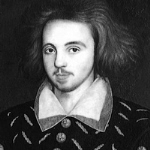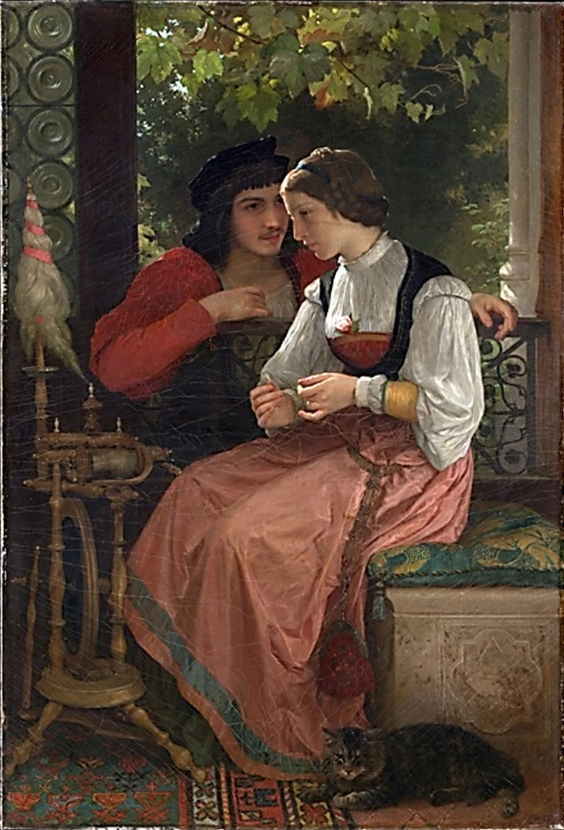 Christopher Marlowe (1564-1593) was an English poet, dramatist, and translator. Poet A. C. Swinburne called him “the father of English tragedy and creator of English blank verse.” Marlowe’s achievements with dramatic verse were enormous, surpassed only by his friend, William Shakespeare. There are those who believe that Marlowe was the actual author of Shakespeare’s works. Poetry by Marlowe includes the popular lyric, The Passionate Shepherd to His Love (c.1580) and an unfinished minor epic, Hero and Leander (1593). He also translated Ovid’s Elegie Amores (c.1580), which was considered offensive and banned in 1599.
Christopher Marlowe (1564-1593) was an English poet, dramatist, and translator. Poet A. C. Swinburne called him “the father of English tragedy and creator of English blank verse.” Marlowe’s achievements with dramatic verse were enormous, surpassed only by his friend, William Shakespeare. There are those who believe that Marlowe was the actual author of Shakespeare’s works. Poetry by Marlowe includes the popular lyric, The Passionate Shepherd to His Love (c.1580) and an unfinished minor epic, Hero and Leander (1593). He also translated Ovid’s Elegie Amores (c.1580), which was considered offensive and banned in 1599.
The Passionate Shepherd to His Love
Come live with me and be my love,
And we will all the pleasures prove,
That valleys, groves, hills and fields,
Woods or steepy mountains yields.
And we will sit upon the rocks,
Seeing the shepherds feed their flocks
By shallow rivers, to whose falls
Melodious birds sing madrigals.
And I will make thee beds of roses,
And a thousand fragrant posies,
A cap of flowers and a kirtle
Embroidered all with leaves of myrtle;
A gown made of the finest wool,
Which from our pretty lambs we pull;
Fair-lined slippers for the cold,
With buckles of the purest gold;
A belt of straw and ivy buds,
With coral clasps and amber studs;
And if these pleasures may thee move,
Come live with me and be my love.
The shepherd swains shall dance and sing
For thy delight each May morning;
If these delights thy mind may move,
Then live with me and be my love.
Read The Nymph’s Reply to the Shepherd by Sir Walter Ralegh.
The Face That Launch’d A Thousand Ships
Was this the face that launch’d a thousand ships,
And burnt the topless towers of Ilium?
Sweet Helen, make me immortal with a kiss.
Her lips suck forth my soul: see where it flies!
Come, Helen, come, give me my soul again.
Here will I dwell, for heaven is in these lips,
And all is dross that is not Helena.
I will be Paris, and for love of thee,
Instead of Troy, shall Wittenberg be sack’d;
And I will combat with weak Menelaus,
And wear thy colours on my plumed crest;
Yea, I will wound Achilles in the heel,
And then return to Helen for a kiss.
O, thou art fairer than the evening air
Clad in the beauty of a thousand stars;
Brighter art thou than flaming Jupiter
When he appear’d to hapless Semele;
More lovely than the monarch of the sky
In wanton Arethusa’s azur’d arms;
And none but thou shalt be my paramour!
